第59章 CHAPTER XIX THE FAUN'S TRANSFORMATION(1)
The door of the courtyard swung slowly, and closed itself of its own accord. Miriam and Donatello were now alone there. She clasped her hands, and looked wildly at the young man, whose form seemed to have dilated, and whose eyes blazed with the fierce energy that had suddenly inspired him. It had kindled him into a man; it had developed within him an intelligence which was no native characteristic of the Donatello whom we have heretofore known. But that simple and joyous creature was gone forever.
"What have you done?" said Miriam, in a horror-stricken whisper.
The glow of rage was still lurid on Donatello's face, and now flashed out again from his eyes.
"I did what ought to be done to a traitor!" he replied. "I did what your eyes bade me do, when I asked them with mine, as I held the wretch over the precipice!"These last words struck Miriam like a bullet. Could it be so? Had her eyes provoked or assented to this deed? She had not known it. But, alas!
looking back into the frenzy and turmoil of the scene just acted, she could not deny--she was not sure whether it might be so, or no--that a wild joy had flamed up in her heart, when she beheld her persecutor in his mortal peril. Was it horror?--or ecstasy? or both in one? Be the emotion what it might, it had blazed up more madly, when Donatello flung his victim off the cliff, and more and more, while his shriek went quivering downward. With the dead thump upon the stones below had come an unutterable horror.
"And my eyes bade you do it!" repeated she.
They both leaned over the parapet, and gazed downward as earnestly as if some inestimable treasure had fallen over, and were yet recoverable. On the pavement below was a dark mass, lying in a heap, with little or nothing human in its appearance, except that the hands were stretched out, as if they might have clutched for a moment at the small square stones.
But there was no motion in them now. Miriam watched the heap of mortality while she could count a hundred, which she took pains to do. No stir;not a finger moved!
"You have killed him, Donatello! He is quite dead!" said she. "Stone dead! Would I were so, too!""Did you not mean that he should die?" sternly asked Donatello, still in the glow of that intelligence which passion had developed in him. "There was short time to weigh the matter; but he had his trial in that breath or two while I held him over the cliff, and his sentence in that one glance, when your eyes responded to mine! Say that I have slain him against your will,--say that he died without your whole consent,--and, in another breath, you shall see me lying beside him.""O, never!" cried Miriam. "My one, own friend! Never, never, never!"She turned to him,--the guilty, bloodstained, lonely woman,--she turned to her fellow criminal, the youth, so lately innocent, whom she had drawn into her doom. She pressed him close, close to her bosom, with a clinging embrace that brought their two hearts together, till the horror and agony of each was combined into one emotion, and that a kind of rapture.
"Yes, Donatello, you speak the truth!" said she; "my heart consented to what you did. We two slew yonder wretch. The deed knots us together, for time and eternity, like the coil of a serpent!"They threw one other glance at the heap of death below, to assure themselves that it was there; so like a dream was the whole thing. Then they turned from that fatal precipice, and came out of the courtyard, arm in arm, heart in heart. Instinctively, they were heedful not to sever themselves so much as a pace or two from one another, for fear of the terror and deadly chill that would thenceforth wait for them m solitude.
Their deed--the crime which Donatello wrought, and Miriam accepted on the instant--had wreathed itself, as she said, like a serpent, in inextricable links about both their souls, and drew them into one, by its terrible contractile power. It was closer than a marriage bond. So intimate, in those first moments, was the union, that it seemed as if their new sympathy annihilated all other ties, and that they were released from the chain of humanity; a new sphere, a special law, had been created for them alone. The world could not come near them; they were safe!
When they reached the flight of steps leading downward from the Capitol, there was a faroff noise of singing and laughter. Swift, indeed, had been the rush of the crisis that was come and gone! This was still the merriment of the party that had so recently been their companions. They recognized the voices which, a little while ago, had accorded and sung in cadence with their own. But they were familiar voices no more; they sounded strangely, and, as it were, out of the depths of space; so remote was all that pertained to the past life of these guilty ones, in the moral seclusion that had suddenly extended itself around them. But how close, and ever closer, did the breath of the immeasurable waste, that lay between them and all brotherhood or sisterhood, now press them one within the other!